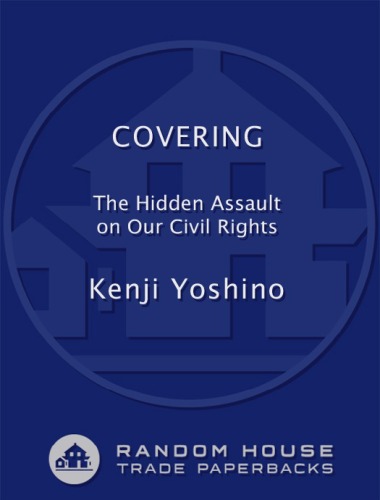
Covering
The Hidden Assault on American Civil Rights
کتاب های مرتبط
- اطلاعات
- نقد و بررسی
- دیدگاه کاربران
نقد و بررسی

Starred review from November 28, 2005
Seldom has a work of such careful intellectual rigor and fairness been so deeply touching. Yoshino, a law professor at Yale and a gay, Asian-American man, masterfully melds autobiography and legal scholarship in this book, marking a move from more traditional pleas for civil equality to a case for individual autonomy in identity politics. In questioning the phenomenon of "covering," a term used for the coerced hiding of crucial aspects of one's self, Yoshino thrusts the reader into a battlefield of shifting gray areas. Yet, at every step, he anticipates the reader's questions and rebuttals, answering them not only with acute reasoning, but with disarming humility. What emerges is an eloquent, poetic protest against the hidden prejudices embedded in American civil rights legislation—legislation that tacitly apologizes for "immutable" human difference from the white, male, straight norm, rather than defending one's "right to say what one is." Though Yoshino recognizes the law's potential to further (and hinder) liberty's cause, he admits that his "education in law has been an education in its limitations." Hence, by way of his unsparing accounts of self-realization, he reveals that the struggle against oppression lies not solely in fighting an imagined, monolithic state but as much in intimate discourse with the mother, the father and the colleague who constitute that state. As healing as it is polemical, this book has tremendous potential as a touchstone in the struggle for universal human dignity.

January 1, 2006
Yoshino, an Asian American law professor at Yale, whose gay status informs this work, explores the struggle for equality of gays in America from the broader perspective of the civil-rights movement. He argues that society resists allowing full equality for gays by instead advocating conversion, passing as straight, and covering homosexuality, tactics similarly imposed on racial and other minorities. Passing is reflected in the military's current "don't ask, don't tell" policy. Covering occurs when a gay is "out" but avoids offending the larger society by "covering." By favoring passing and covering, self--perceived liberal nongays, Yoshino argues, are in fact denying gays full rights. Yoshino considers "covering," the demand that gays not flaunt their orientation, to be the civil-rights issue of today. Yoshino views the "accommodation" model applied in law to religious and disabled minorities as a bright spot but recognizes its restricted application to gays. While accommodation could be more readily applied to traditionally protected groups, he is not optimistic about this course with America's increasing pluralism. An insightful read.(Reprinted with permission of Booklist, copyright 2006, American Library Association.)

























دیدگاه کاربران